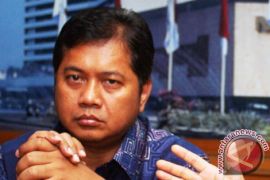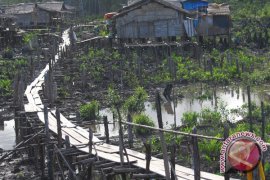"The moratorium, which is valid for 2 years, as stated in the president`s instruction programme, is very shaky. It has not even begun to combat the problems we face in conserving forestry, let alone address the process of rehabilitation," Hasanuddin said in Jakarta on Wednesday.
According to Hasanuddin, the presidential instruction programme number 10/2011 released last year to conserve forestry has only focused on preventing new sites from being opened in the forest and peatland regions. The moratorium`s implementation only seems to protect the forests and their surrounding regions that have already been conserved by the government.
He stated that in the first year of its enforcement, the moratorium received several positive reactions from all sorts of people, from activists to artists. The conservation, rehabilitation and prevention for forestry needs to be highly prioritised on the government`s agenda, as the damage caused to forestry has given rise to many social problems that continue until this very day.
"There is actually a more constitutional and systematic way to conserve forestry, such as completing the law planned for the prevention and eradication of illegal logging (RUU-P3L). But until now, the fate of that law is still strung out," he remarked.
Hasanuddin stressed the need to tweak the forestry laws in order to protect people`s cultural beliefs, because the final objective of these laws was to save the country`s assets, restore and conserve the environmental balance, and protect and reinstate the livelihood of communities situated around the forests.
"While the laws on forestry conservation continue to be on the back burner, we should bring back the moratorium so that we can protect forests, not based on a time limit or what we can achieve, but in order to provide solutions for the rehabilitation process," he added.
(O001)
Editor: Aditia Maruli Radja
Copyright © ANTARA 2012




